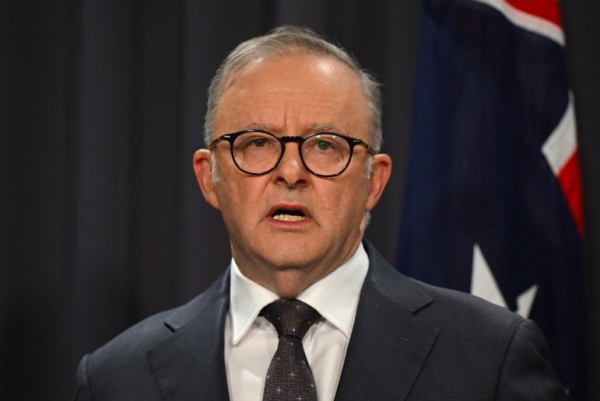
Australia’s government on Thursday officially introduced a bill that would ban social media for children younger than 16 with the backing of Prime Minister Anthon Albanese. File Photo by Lucas Coch/EPA-EFE
The Australian government on Thursday officially introduced legislation that would impose bans on social media use for children younger than 16.
Communications Minister Michelle Rowland said the proposed law would target outlets like TikTok, Facebook, Snapchat, Instagram, Reddit, and X, but would not apply to messaging services like Facebook Messenger and WhatsApp or services like Kids Helpline. Advertisement
She said educational content on YouTube and Google Classroom would also not be affected.
Rowland said earlier this month that the age of 16 was decided upon after consultation with experts, parents, organizations, advocacy groups, and academics.
Australia’s Prime Minister Anthony Albanese promised that his government’s eSafety commission will be in charge of the proposed law’s oversight and will be responsible for its guidance if it passes. He said there will be some exceptions worked out for parental consent and other limited circumstances.
The Australian government said social media companies could face fines of more than $50 million for systemic breaches. Users and parents will not face fines, the government said.
“We know social media is doing social harm,” Albanese said in a statement. “We want Australian children to have a childhood, and we want parents to know the government is in their concern. This is a landmark reform. We know some kids will find workarounds, but we’re sending a message to social media companies to clean up their act.” Advertisement
The Australian Human Rights Commission expressed doubt that the law can be put into place without harming the rights human rights of young people.
“Such a social media ban is likely to also have negative human rights impact on children and young people,” the commission said in a statement. “Where rights are limited to protect children from online harms, any limitation must be lawful, necessary, and proportionate.
“If there is a restrictive option available to achieve the aim of protecting children from harm, they should be preferred over a blanket ban.”